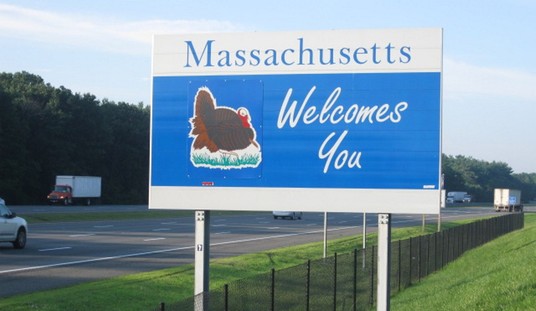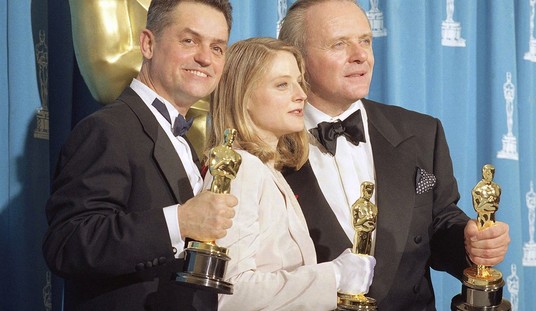Did I tell you to remember the name, “Elliott Broidy,” and that you’d be hearing it again?
Yes I did, and here we go.
It seems that Broidy, and George Nader, the Lebanese-American businessman, who serves as an adviser to the United Arab Emirates, and who is currently cooperating with special counsel Robert Mueller’s investigation, are tied together in what appears to be a bit of suspicious lobbying, on behalf of the UAE.
According to a new report from the Associated Press, Nader:
“…wired $2.5 million to the Trump fundraiser, Elliott Broidy, through a company in Canada, according to two people who spoke on the condition of anonymity because of the sensitivity of the matter. They said Nader paid the money to Broidy to bankroll an effort to persuade the U.S. to take a hard line against Qatar, a long-time American ally but now a bitter adversary of the UAE.
A month after he received the money, Broidy sponsored a conference on Qatar’s alleged ties to Islamic extremism. During the event, Republican Congressman Ed Royce of California, the chairman of the House Foreign Affairs Committee, announced he was introducing legislation that would brand Qatar as a terrorist-supporting state.”
Royce introduced the bill in May 2017. In July 2017 he gets the maximum in campaign gifts – $5,400 – from Broidy.
In all, Broidy has made just under $600,000 to Republicans, as he pushed for that legislation to take a hardline against Qatar.
Broidy defended himself to the AP by suggesting that this is not a new thing for him – lobbying against terrorists and governments that support them.
“I’ve both raised money for, and contributed my own money to, efforts by think tanks to bring the facts into the open, since Qatar is spreading millions of dollars around Washington to whitewash its image as a terror-sponsoring state,” he said. “I’ve also spoken to like-minded members of Congress, like Royce, about how to make sure Qatar’s lobbying money does not blind lawmakers to the facts about its record in supporting terrorist groups.”
Ok. That’s not a bad thing, actually.
I think the problem is the foreign money that may be behind the push and the appearance of being an unregistered foreign agent. That’s pretty much a no-no.
While the Russia probe is the squeaky wheel getting all the grease, right now, there seems to be a simmering backstory of attempts to influence U.S. policy in the Middle East.
Remember the piece I covered last week about Jared Kushner’s unannounced trip to Riyadh, and his relationship with Saudi Prince Mohammed bin Salman? The Saudi royal boasted that he had Kushner “in his pocket,” according to sources.
It’s a complicated twist of events, but Saudi and UAE officials initiated a blockade to weaken Qatar during that period. Then-Secretary of State Rex Tillerson attempted to mediate in the matter, but was undercut by Kushner and President Trump.
Totally unrelated (I’m sure), this support of the blockade of Qatar from Trump and Kushner comes a month after Kushner’s dad appealed directly to Qatar’s minister of finance for funding to prop up the struggling Kushner family business. He was turned down.
So is this tied to what is going on with Nader and Broidy’s apparent lobbying?
It may not be, directly, but indirectly, there are far too many connections.
The timeline of the influx of cash wired by Nader, an adviser to Abu Dhabi Crown Prince Sheikh Mohamed bin Zayed al-Nahyan, the de facto leader of the UAE, may provide grist for U.S. special counsel Robert Mueller’s legal team as it probes the activities of Trump and his associates during the 2016 campaign and beyond. However, it is not clear that Mueller has expanded his investigation in that direction.
Mueller’s investigators are looking into two meetings close to Trump’s inauguration attended by Nader and bin Zayed. The pair joined a meeting at New York’s Trump Tower in December 2016 that included presidential son-in-law Jared Kushner and Steve Bannon, who was Trump’s chief strategist at the time. A month later, Nader and bin Zayed were a world away on the Seychelles island chain in the Indian Ocean, meeting with Erik Prince, the founder of the security company Blackwater, and the Kremlin-connected head of a large Russian sovereign wealth fund, Kirill Dmitriev.
Broidy and Nader met at Trump’s inauguration in January 2017. It was several months later that they began to work together to attempt to influence U.S. policy in the Middle East.
On April 2, 2017, Nader asked Broidy to invoice his Dubai-based company for $2.5 million, according to someone familiar with the transaction who spoke on condition of anonymity.
On the same day, Broidy attached an invoice for that amount from Xiemen Investments Limited, a Canadian company directed by a friend. The money was forwarded to his own account in Los Angeles from the Canadian account, the person said. It was marked for consulting, marketing and advisory services, but was actually intended to fund Broidy’s Washington advocacy regarding Qatar, two people familiar with the transaction said. The financial transaction and the White House meetings were first reported by The New York Times.
It was in May 2017 that Rep. Royce appeared at a conference to discuss Qatar’s ties to the Muslim Brotherhood and announced sanctions naming Qatar as sponsors of terrorism.
Broidy set up and funded that conference, after contacting the think tank group, the Foundation for the Defense of Democracies, who were sponsors.
He also contributed to a second such conference in October.
Campaign finance records going back two decades show Broidy had not given any money to Royce — until he gave the lawmaker a pair of $2,700 donations on July 31, 2017.
By then, the sanctions bill was on a fast track.
The original draft considered by the Foreign Affairs Committee contained language singling out Qatar as a supporter of Hamas, a Palestinian organization that has been designated as a terrorist group by the U.S. State Department.
“Hamas has received significant financial and military support from Qatar,” the draft bill states.
Soon Qatar was lobbying hard to have that language excised. Nikki Haley, U.S. ambassador to the United Nations, declared in a statement to the committee that Qatar does not fund Hamas.
There was an apparent rethinking of the language in the bill, regarding Qatar, and a bipartisan agreement to remove the language, as lawmakers did not want to exacerbate the ongoing tensions in the Gulf, by having it appear they were taking sides.
Just before the bill was to be put up for a vote, Royce reinstated the language, and made it even tougher. The bill was passed in November, catching the Qatari government off-guard, as they thought the matter had been settled.
And by a massive coincidence, Broidy’s company signed a hefty contract in January with the UAE to work on intelligence gathering.
I told you earlier today to remember Elliott Broidy’s name. More will likely come from this.













Join the conversation as a VIP Member